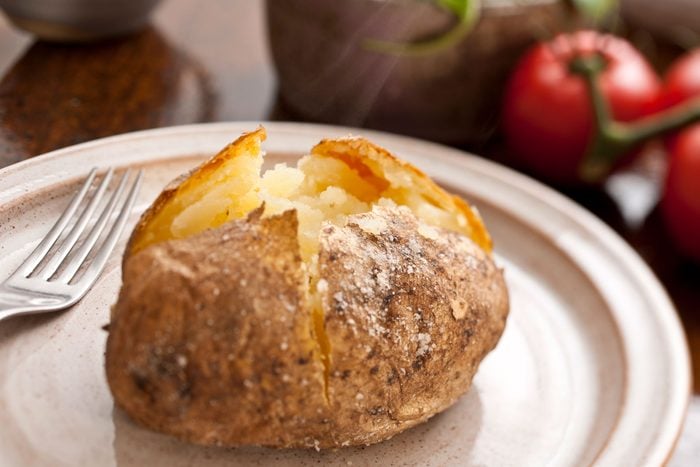
After all that prep and the procedure itself, it’s natural to come out of the anesthesia from your colonoscopy and start to feel your appetite recover. That’s when it might suddenly dawn on you: Should I have stocked up on certain foods to ease back into my diet?
While many colonoscopy patients learn about the importance of colonoscopy prep, healthcare providers don’t always chat about the nutrition journey post-procedure. Learning what to eat after your colonoscopy might not always be clearly instructed, but indeed you might consider some stocking up with a few particular foods before you go in.
Colonoscopies are crucial not only for detecting colorectal cancer, which affects a significant portion of the population, but also for identifying other potential diseases within the digestive system. According to the American Cancer Society, the lifetime risk of developing colorectal cancer is about one in 23 for men and one in 25 for women, highlighting the importance of regular screenings with a colonoscopy starting from age 45.
Ahead, Cleveland Clinic gastroenterologist Christine Lee, MD, dishes out valuable advice on the dos and don’ts of what to eat after a colonoscopy to ensure you’re fully equipped for a hassle-free recovery. Keep reading to learn what this gastroenterology expert says are the best foods to eat after a colonoscopy.
When can I eat normally after a colonoscopy?
Your digestive system will need a little tender loving care post-exam, so hold off on the feast until the sedation’s fog fully lifts. Most people can return to their regular diet within a day or two, but it’s always best to follow your doctor’s personalized recommendations. They know your medical history and can guide you towards the best options.
Americans Are Waiting Too Late To Screen for Colorectal Cancer—Here’s When You Should Start
What is the best meal to eat after a colonoscopy?
Dr. Lee suggests that when it’s time to start eating again, it’s wise to begin with foods that are easy on your stomach. Initially opting for light and bland foods can help prevent any discomfort or digestive issues.
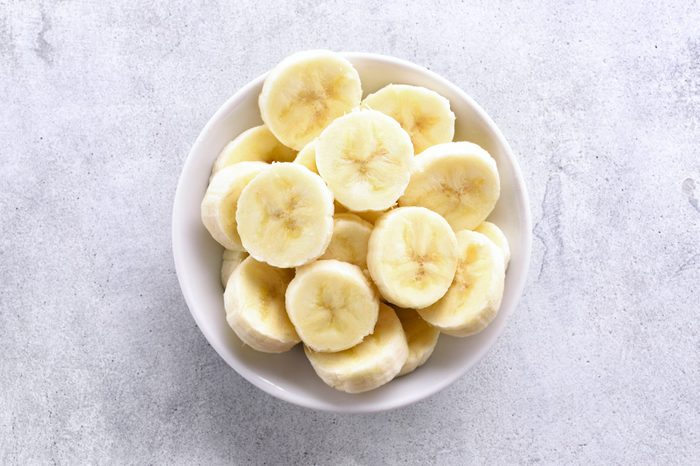
What to eat after a colonoscopy
1. BRAT diet
Chances are you’ve heard of the BRAT diet, an acronym for bananas, white bread, white rice, applesauce, and white toast. These simple carbs are easy to break down and can help solidify your stools, making them the perfect addition to your post-colonoscopy menu.
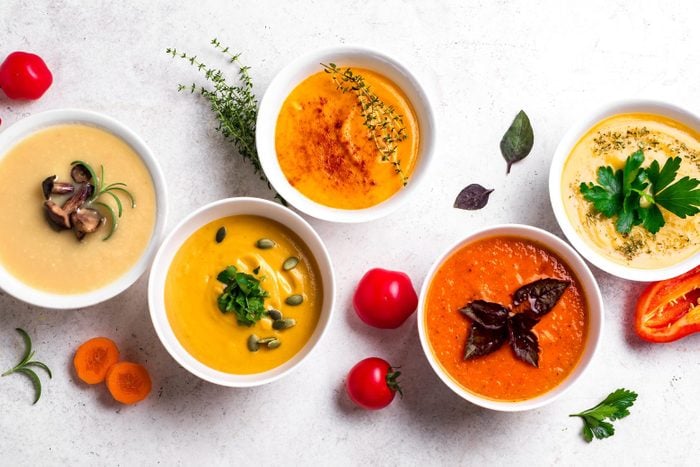
2. Soups
Easily digestible and low in gas-producing ingredients, soups are “very easy to digest post colonoscopy,” according to Dr. Lee. Whether you opt for a clear broth or a pureed soup, this comforting meal will be gentle on your recovering gut.
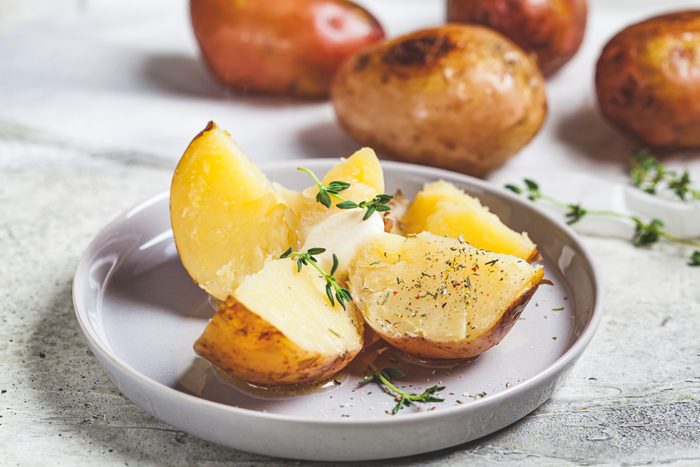
3. Baked potatoes
These starchy, bland favorites are perfect for absorbing stomach acid and helping your bowel movements return to normal after the laxatives used during the colonoscopy prep. Their comforting texture and neutral flavor make them a go-to choice for post-procedure meals.
Keep in mind, now is not the time to load them with fatty toppings. A simple pad of butter or olive oil and a little salt and pepper will likely be gentlest on your tummy.
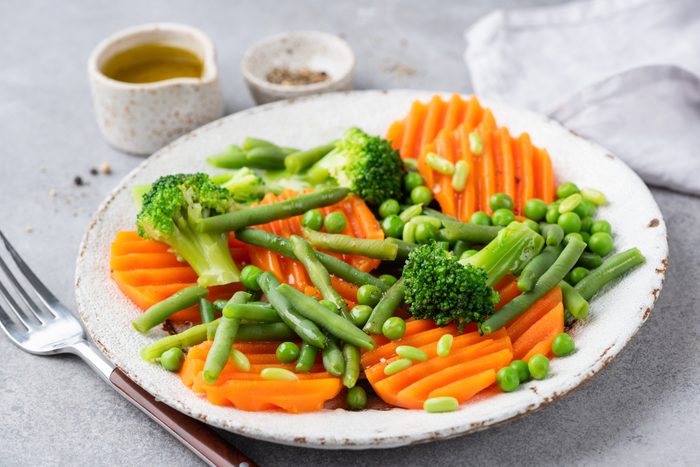
4. Steamed or cooked vegetables
While raw veggies are likely to be tough on your stomach right after your scope, steamed or cooked vegetables are easier to digest and “less gas-forming when being digested,” Dr. Lee says.
Opt for soft, well-cooked options like carrots and zucchini to get your veggie fix without causing discomfort.
“Here’s How I Knew I Had Colon Cancer”: One Survivor’s Story After a Single, Subtle Symptom
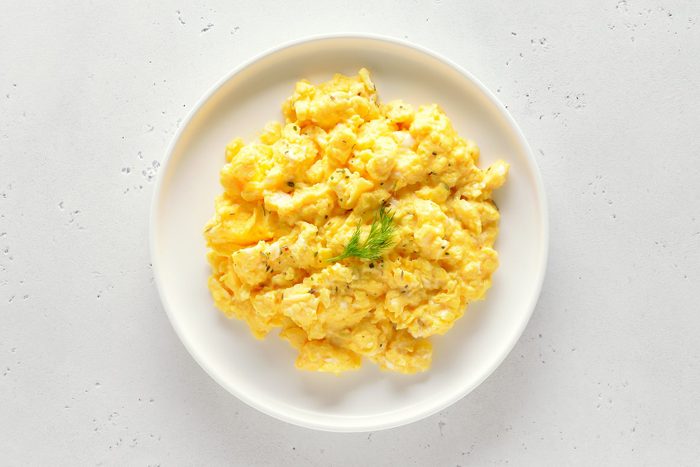
5. Lean proteins
Cooked eggs, baked or boiled chicken, or baked or boiled white fish are protein-packed options that are gentle on your digestive system and won’t contribute to those dreaded post-colonoscopy gas pains. Plus, they’re easy to prepare and can be seasoned with mild herbs to keep things interesting.
Foods to avoid after a colonoscopy
Dr. Lee says that to help you fully recover, these are three categories of foods and beverages you want to stay away from for the first few days after your colonoscopy.

1. Alcohol
As tempting as it may be to celebrate your successful procedure with a drink, it’s best to steer clear of alcohol due to the lingering effects of anesthesia and your empty stomach. Give your body at least a handful of days to recover before indulging in any post-scope cocktails.
New Study: White Bread and Alcohol Linked to Colorectal Cancer
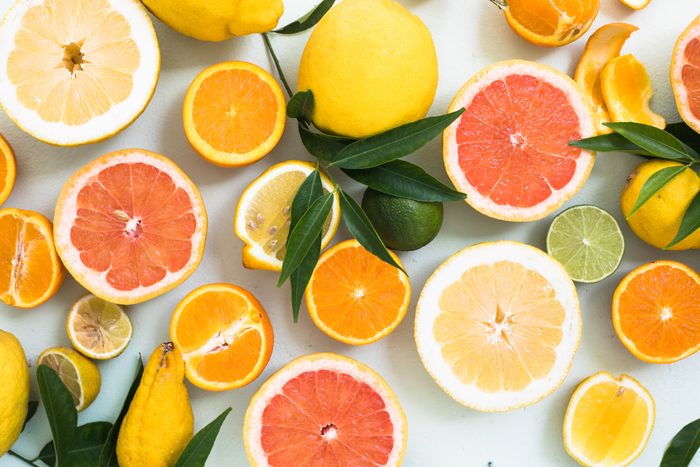
2. Acidic fruits
After fasting for your colonoscopy, your stomach might be more sensitive than usual. Dr. Lee warns that “acidic foods may aggravate or upset your empty stomach,” so it’s best to avoid citrus fruits, tomatoes, and other acidic options for now.
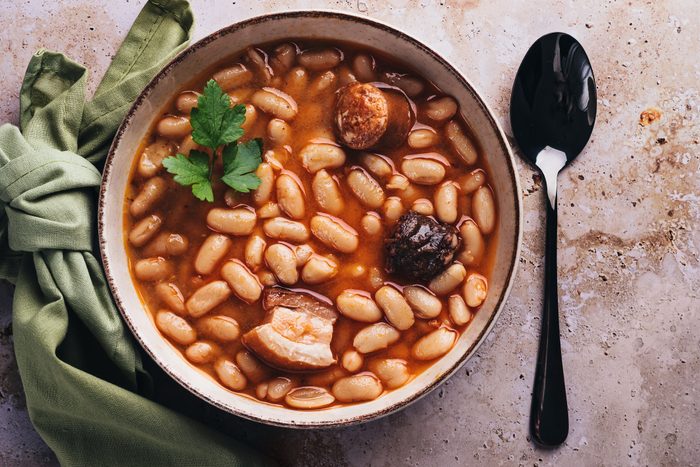
3. Cruciferous vegetables, beans, and legumes
While these foods are usually nutritious additions to your diet, they’re notorious for causing gas. Dr. Lee cautions that “gas-producing foods can add air left from the colonoscopy and potentiate gas pains,” so it’s best to avoid these culprits until you’re feeling better.
How High Is Your Colon Cancer Risk? This 1-Minute Quiz Helps You Find Out
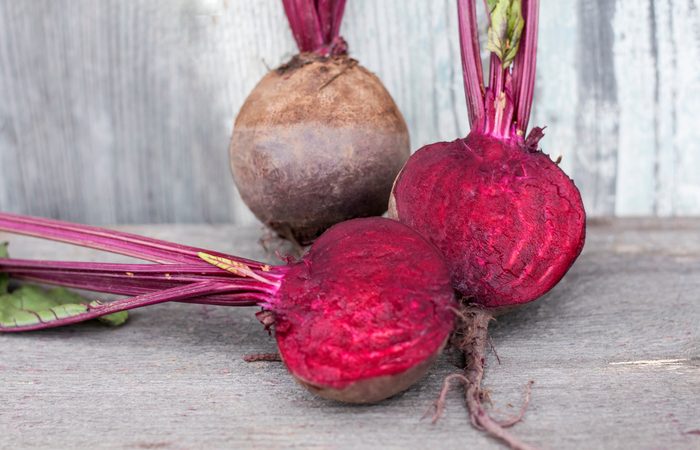
4. Beets
Dr. Lee says as much as you might love these colorful root vegetables, they can cause confusion post-colonoscopy. Beets can tint your stools, which might be mistaken for blood and cause unnecessary alarm.
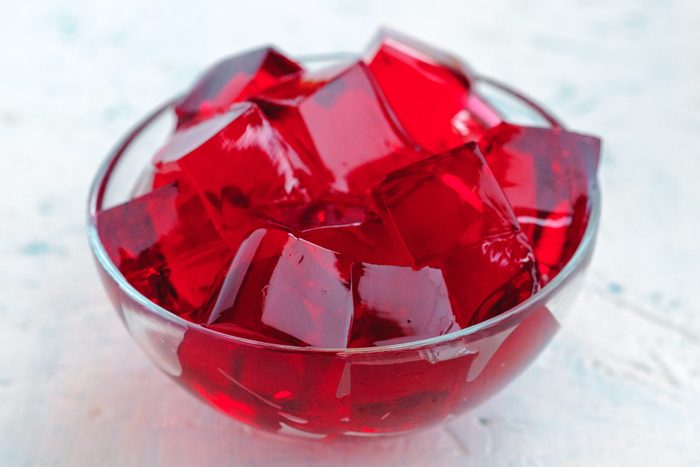
5. Juice, popsicles, or gelatins with red dye
Similar to beets, red-hued foods and drinks can alter the color of your bowel movements, making it difficult to distinguish between normal stool and potential bleeding.
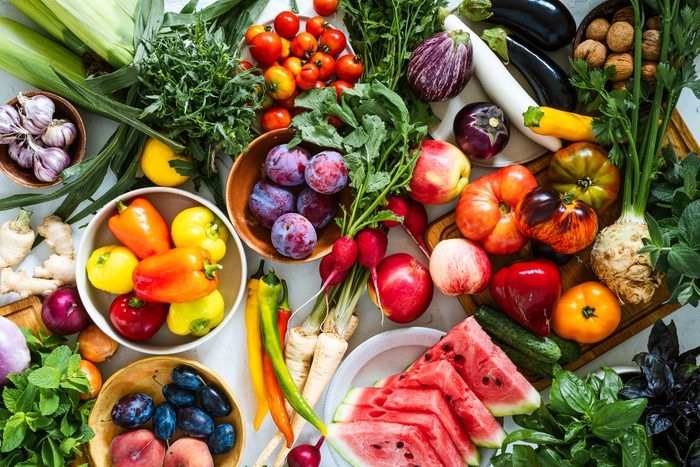
What to eat after a colonoscopy if the doctor finds a mass
If a mass is discovered during your colonoscopy, your doctor or a nutrition specialist might suggest a diet tailored to support your body’s needs and to prepare you for any potential treatments. Here are some general dietary recommendations:
- Increase protein intake: Protein is crucial for the healing and repair of tissues. If you’re facing surgery or other treatments, consuming adequate protein can help your recovery. Lean meats, fish, eggs, and plant-based proteins like beans are good sources.
- Focus on whole foods: Emphasize fruits, vegetables, and whole grains in your diet. These foods are rich in vitamins, minerals, antioxidants, and fiber, which can support overall health and may help the body cope better with treatment side effects.
- Stay hydrated: Adequate hydration is vital, especially if experiencing symptoms like diarrhea or vomiting. Water, herbal teas, and clear broths can keep you hydrated. Avoiding caffeine and alcohol is also advisable.
- Manage dietary fiber: If surgery is planned, you may need to adjust your fiber intake. While fiber benefits digestive health, a low-fiber diet might be recommended temporarily before surgery to reduce bowel residue. Your healthcare provider will guide you on the appropriate fiber intake for your situation.
- Consider specialized nutritional supplements: Depending on your needs and the nature of the discovered mass, your doctor may recommend specific supplements to ensure you get enough vitamins and minerals. However, always consult with your healthcare provider before starting any supplements.
- Tailor your diet to manage symptoms: If you’re experiencing nausea, bloating, or poor appetite, change your diet accordingly. Small, frequent meals might be more manageable, and foods that are easy on the stomach, like ginger tea for nausea, can be beneficial.
Remember, these recommendations should be adapted to your specific health situation and dietary needs. It’s important to work closely with your healthcare team, including doctors and dietitians, who can provide personalized advice based on the nature of the mass, your overall health, and any planned treatments or interventions.
For more wellness updates delivered to you daily, subscribe to The Healthy @Reader’s Digest newsletter and follow The Healthy on Facebook and Instagram. Keep reading:
